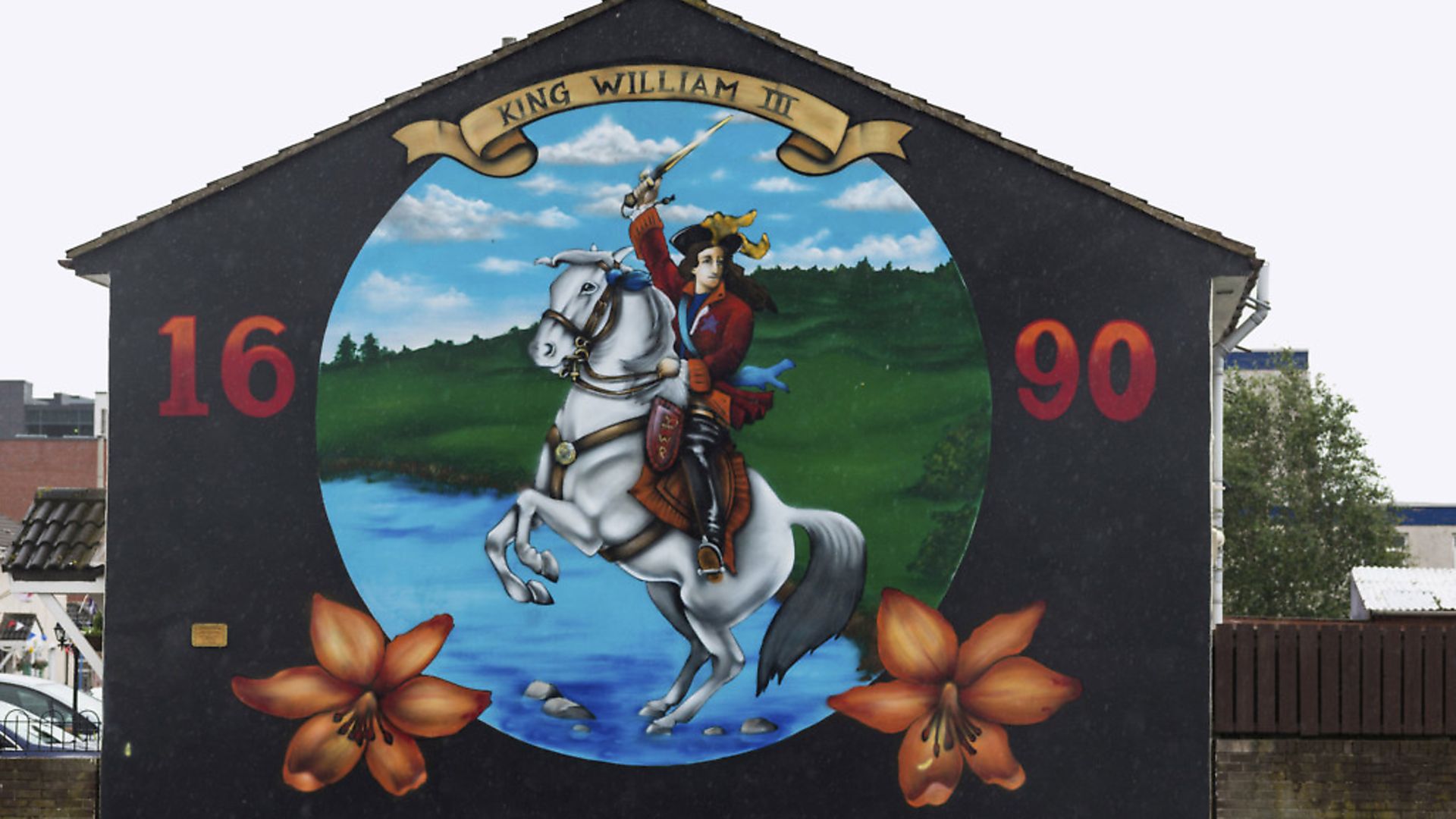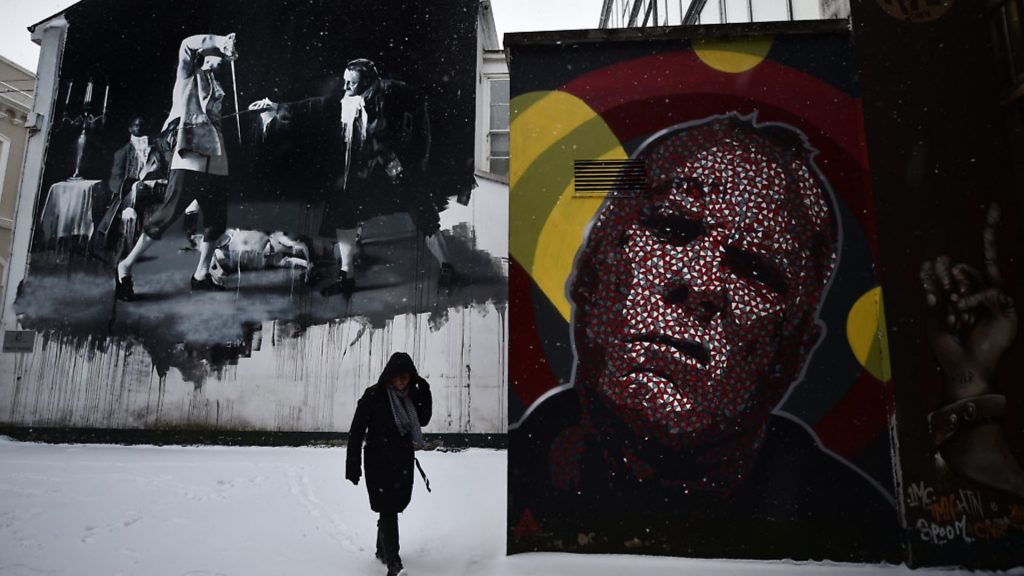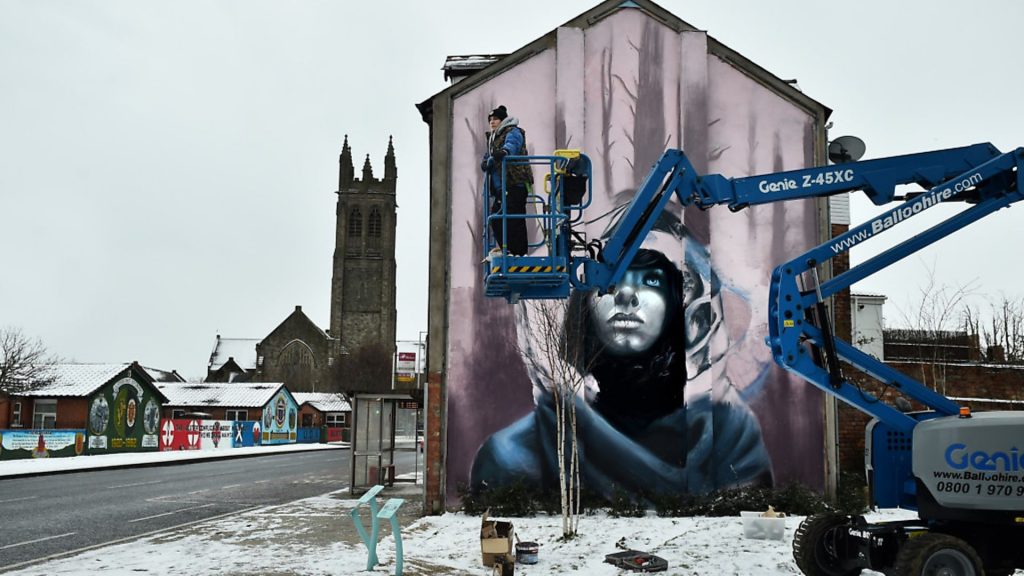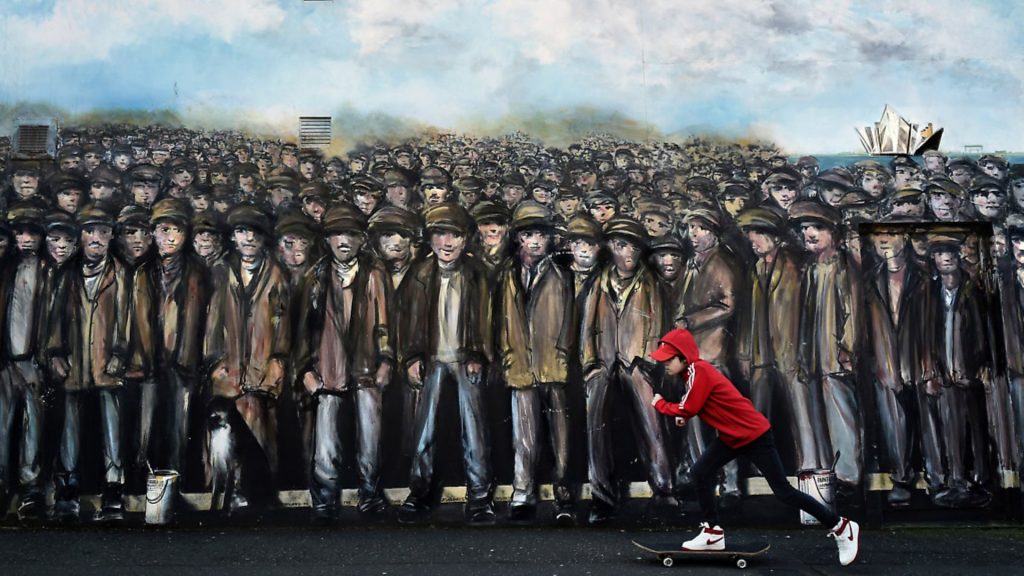
The political situation in Northern Ireland leaves many unionists unrepresented and Brexit is serving only to heighten this sense of disconnect. PADDY HOEY considers where it might lead

A remarkable thing happened on television in Northern Ireland recently which would have been unthinkable a generation ago.
Representatives of the Ulster Farming Union and the business communities – historically seen as the heart of the unionist establishment – strongly criticised the Democratic Unionist Party (DUP) MP Sir Jeffrey Donaldson over his party’s stance on Brexit on the BBC’s flagship local politics show The View.
These representatives were voicing their support of Theresa May’s Withdrawal Agreement, seeing it as a means of bringing clarity to an issue that threatens dire financial consequences for an economy that has been rebuilt on cross-border trade and exporting to Europe.
That an agreement which issues a challenge to British sovereignty was being accepted by these representatives could be read as a seismic moment in unionism – characteristically, the DUP’s Sammy Wilson denounced them as puppets of the Northern Ireland Office.

In Remainer Britain, with its largely metropolitan liberal views, mediated by Twitter and social media, the DUP have come to encapsulate the tawdry, illiberal right wing that has corrupted politics in recent years.
With a membership that widely opposes gay marriage, leaders who supported Asher’s, the Belfast bakery that refused to decorate a cake in support of marriage equality, and who were also on record as being openly hostile to immigration, the DUP has become an easy bête noire.
However, as ever with Northern Irish politics, specific context is everything. Without a working knowledge of the religious and often subtle class divisions, it would be easy to see the DUP as representative of all of Ulster unionism. That could not be further from the truth.
‘There never has been a single unambiguous unionist identity, but what unites the bin man to the banker is a belief that constitutional interests are best protected in the United Kingdom,’ says Alex Kane, a journalist and former director of communications for the Ulster Unionist Party.

It would therefore be unwise to see Northern Irish unionism as a cohesive ideological identity structure, especially as Brexit challenges business and constitutional arrangements.
The DUP, formed in 1971 by Rev Ian Paisley Snr to represent the twin interests of Ulster loyalism and his religiously fundamentalist Free Presbyterian Church, was the unruly counterbalance to the ‘big house’ unionism of the Ulster Unionist Party which had controlled the Northern Ireland parliament, the institutions of the state and whole sectors of the business community for much of the 20th century.
While Paisley and his acolytes were pictured in paramilitary-style berets at countercultural rallies of the 1980s, at Ulster Unionists maintained their place as the dominant political force in the province.
They were, perhaps, no less sectarian, and were the architects of a system of national and local government that was openly discriminatory.
However, they were forced to become more open to reform as the demographic divide between Catholics and Protestants narrowed over the last 30 years. In the same period, the party also became more liberal and less dominated by the religious and political fundamentalism of the DUP.
As the DUP ascended to power after the signing of the Good Friday Agreement, aided by an assembly which sanctioned and encouraged a sectarian electoral carve-up between it and Sinn Féin, the Ulster Unionists’ power and influence waned to its now historically low ebb.
This was partly because more liberal unionists increasingly deserted the Northern Ireland political and electoral scene during the Troubles.
One of the lost tribes of Northern Ireland are the so-called ‘Golf Club Protestants’, those financially well-enough off to ignore politics, and for whom there may not be a party that truly represents their views.
More than 40% of Protestant unionists, at each end of the economic strata – either extremely poor or very wealthy – rarely use their vote, for a variety of reasons.
In the 1970s and 1980s, when people talked of Northern Ireland’s ‘brain drain’, the euphemism largely related to, if not exclusively, young Protestant unionists who left the province for university never to return, alienated by the sectarian insularity and violence of the Troubles.
Kane says: ‘This has been going on for 30-odd years, perhaps two generations now. These were people who were happy enough being in the union, but it wasn’t in the flesh and blood of their being.
‘They were liberal – they had no hang-ups about homosexuality or people who didn’t believe in God or the monarchy – they were ‘live and let live’.
‘Some tried joining political parties and found it wasn’t for them. For those that moved away, the unionism that they were brought up with wasn’t the unionism that they were experiencing in England and Scotland.’
Unionism in Northern Ireland is now dealing with the result of not having a liberal counterbalance to the strident fundamentalism that the DUP represents.
Despite the DUP taking a third of all votes at the last Westminster election, research has found that unionists are statistically more likely to be more politically and socially liberal than their Catholic nationalist counterparts.
Professor Peter Shirlow, director of the Institute of Irish Studies at the University of Liverpool, who has written extensively about Ulster unionism and loyalism, says: ‘Research conducted through election surveys shows that those that are pro-union are on a par with those that are pro-Irish unification on issues such as gay marriage, pro-choice on abortion, and support mixed housing and shared education.
‘This is reflective of a growing mood that civic unionism must articulate its historically liberal voice in order to share Northern Ireland and build a progressive and inclusive society.’
Brexit and the manifest problems that it causes for the border in Ireland and the constitutional arrangements that it throws up, has brought the issue of Irish unification back on to the agenda, driven, in no small part, by Sinn Féin and Irish nationalists.
For much of the 20th century, the Republic of Ireland was looked on suspiciously by unionists because of the role played in the state by the Catholic church. But it has become more liberal in recent years, with the decriminalisation of homosexuality, contraception and abortion. It is a younger, more outward-facing country than it has ever been, thanks, in part, to the financial and constitutional effects of being in the EU. However, that does not make it an automatically aspirational space for unionists who rightly remain bound to their Britishness.
Professor Shirlow says: ‘The majority of unionists are on the same page as republicans on equality issues, but that doesn’t mean that they want to work for a united Ireland.’
Yet Brexit is forcing the hands of Northern Irish unionism. In one camp, those used to cross-border travel, through business or support for the ‘unified’ Irish rugby or cricket teams, may see the republic as a safer haven than a region where the dogmatism of sovereignty and Ulster British nativism triumphs over pragmatism and the needs of commerce.
Professor Shirlow says that the recent, loudly-expressed views of the business community are perhaps instructive of a change in the politics of some forms of unionism.
He says: ‘These people are not against unification, they are not anti-Catholic or the Irish state.
‘There is a space for them to occupy which is a debating space and advocacy space as was seen in the last month or two. They are telling the DUP: you do not speak for us.’
Because of the border and the issues around trade and tariffs which threaten many businesses, a form of reunification which safeguards jobs and revenues may become a pragmatic result of the outplaying of Britain leaving the EU.
However, in another camp, there is a unionism that lacks the religious fundamentalism of the DUP, which also eschews the febrile Ulster nativism of loyalists and identifies as an ideological and intellectual extension of British conservative nationalist unionism.
For them, Margaret Thatcher’s famous quote about Ulster being as British as Finchley remains true to this day.
Political commentator Owen Polley, who supported Brexit and has been an activist for the Conservative Party in Northern Ireland, reflects this form of unionism: ‘There’s always been a UK-facing form of civic Ulster unionism and there is one more focused on the internal politics of Northern Ireland.
‘During the referendum campaign, it was almost encouraging for UK-facing unionism because the debate stuck quite close to the issues on a UK-wide basis.
‘I have never been interested in having the cultural trappings of the national without the constitutional.
‘My allegiance to the United Kingdom is something that is political – there may be some cultural Irishness, but it is not the same as the political, national identity.’
Working class unionists almost exclusively vote for the DUP now, seeing it as reflecting the last bastion of Ulster vanguardism, fighting a backs-against-the-wall resistance for their rights against the demographic timebomb when Catholics will become the majority community in the next decade.
Alex Kane says: ‘When working class unionists worked in manufacturing industries, they had trade unions and the jobs, they did not need their own Labour-type party, the Ulster Unionists safeguarded their rights in work and in housing.
‘It has only been since the late 1970s onwards, when the industries failed, and equal opportunities legislation came along, that workers needed a party that represented not just loyalists but also nationalists.
‘But that opportunity was missed, and now parties like Sinn Féin and the DUP, working in their own narrow constitutional interest, use the sectarian polarisation.’
Whatever the future for unionism in Northern Ireland post-Brexit, with demographic changes under way it needs to become less ideologically ‘defenderist’ and more positive, if it is to persuade moderate nationalists on the economic and political arguments for remaining in the United Kingdom.
Kane says: ‘For nationalists the aspiration has always been about positively moving forward to a united Ireland.
‘But for unionists it’s always been about what has been lost and the traitors that have abandoned them, and that is more difficult to sell.
‘The demographics are changing: Arlene Foster and Sammy Wilson are telling us to ignore the polls that say opinions are changing on reunification.
‘But they are also saying that the union is in danger because of Theresa May, who they have been propping up in government. They can’t have it both ways and Theresa May has joined a long line of traitors.’
The main question in the run-in to Brexit is whether the business community’s recent minor rebellion on BBC television represents a major step in the breaking down of unionism’s slenderly-held political control of Northern Ireland.
Kane says: ‘Small U unionists, might be listening to arguments that they weren’t five years ago. They won’t listen to it coming from Sinn Féin, but they might when it is coming from (Irish Taoiseach) Leo Varadkar.
‘My gut instinct is that this is not a rebellion against the DUP, this is business people wanting to know about how their businesses are going to function after Brexit. We have no executive at Stormont, therefore these people have no executive to lobby, so there is nothing there to give them certainty.’









